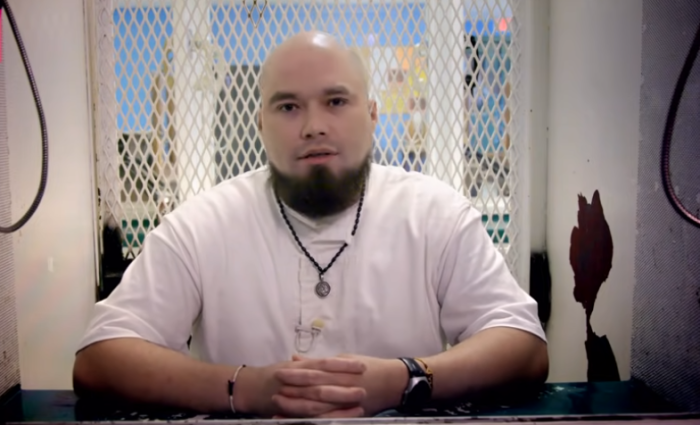Prosecutor asks to withdraw death penalty for murderer at center of Supreme Court prayer case

A district attorney in Texas filed a motion to withdraw the death penalty for an inmate at the center of a recent U.S. Supreme Court ruling that allowed him to have a Baptist minister lay hands on him during his execution.
Last Thursday, Nueces County District Attorney Mark A. Gonzalez filed a motion in district court requesting the withdrawal of “the order setting [John Henry] Ramirez’s execution date and recall the death warrant.”
In 2008, Ramirez was found guilty of brutally murdering 46-year-old Corpus Christi convenience store worker Pablo Castro in 2004. Ramirez reportedly stabbed the clerk around 30 times and was apprehended in Mexico over three years later. He was recently issued an execution date for this coming October.
“The undersigned District Attorney for Nueces County has the firm belief that the death penalty is unethical and should not be imposed on Mr. Ramirez or any other person while the undersigned occupies the office in question,” read the motion.
“The Assistant District Attorney who most recently moved for an execution date in this cause was not aware of my desire in this matter and did not consult me prior to moving for an execution date.”
Ramirez's attorney, Seth Kretzer, was confident that the death penalty will be withdrawn. He told local media outlet KRIS 6 News that if “the moving party no longer wants that result, it would seem to be very unusual that a judge says, ‘Oh no, you must have it.’”
Ramirez filed a complaint last year when he was denied a request to have a pastor pray audibly and lay hands on him while being executed via lethal injection.
In March, the U.S. Supreme Court ruled 8-1 in favor of Ramirez, reversing an earlier ruling and remanding the case for further legal proceedings to find a solution that respects his beliefs.
“Given the current record, respondents have not shown that a total ban on audible prayer is the least restrictive means of furthering their asserted interests,” wrote Chief Justice John Roberts for the majority.
Roberts also rejected the government’s rule that clergy inside cannot be allowed closer than three feet from a prisoner being executed in the name of preventing interference.
“We do not see how letting the spiritual advisor stand slightly closer, reach out his arm, and touch a part of the prisoner’s body well away from the site of any IV line would meaningfully increase risk. And that is all Ramirez requests here,” Roberts continued.
“We think that preventing accidental interference with the prison’s IV lines is a compelling governmental interest. But we also think it is one reasonably addressed by means short of banning all touch in the execution chamber.”
Justice Clarence Thomas dissented, arguing that “Ramirez has manufactured more than a decade of delay to evade the capital sentence lawfully imposed by the state of Texas.”
“This Court now affords yet another chance for him to delay his execution," wrote Thomas. "Because I think Ramirez’s claims either do not warrant equitable relief or are procedurally barred, I respectfully dissent."
Before being heard before the nation's high court, Ramirez's case received the backing of several faith groups, including the Southern Baptist Convention's Ethics & Religious Liberty Commission, the National Association of Evangelicals and the Seventh-Day Adventist General Conference, among others.




























